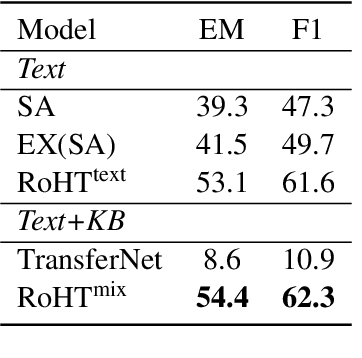Tingjia Zhang
Flowmind2Digital: The First Comprehensive Flowmind Recognition and Conversion Approach
Jan 08, 2024Abstract:Flowcharts and mind maps, collectively known as flowmind, are vital in daily activities, with hand-drawn versions facilitating real-time collaboration. However, there's a growing need to digitize them for efficient processing. Automated conversion methods are essential to overcome manual conversion challenges. Existing sketch recognition methods face limitations in practical situations, being field-specific and lacking digital conversion steps. Our paper introduces the Flowmind2digital method and hdFlowmind dataset to address these challenges. Flowmind2digital, utilizing neural networks and keypoint detection, achieves a record 87.3% accuracy on our dataset, surpassing previous methods by 11.9%. The hdFlowmind dataset, comprising 1,776 annotated flowminds across 22 scenarios, outperforms existing datasets. Additionally, our experiments emphasize the importance of simple graphics, enhancing accuracy by 9.3%.
Reasoning over Hierarchical Question Decomposition Tree for Explainable Question Answering
May 24, 2023



Abstract:Explainable question answering (XQA) aims to answer a given question and provide an explanation why the answer is selected. Existing XQA methods focus on reasoning on a single knowledge source, e.g., structured knowledge bases, unstructured corpora, etc. However, integrating information from heterogeneous knowledge sources is essential to answer complex questions. In this paper, we propose to leverage question decomposing for heterogeneous knowledge integration, by breaking down a complex question into simpler ones, and selecting the appropriate knowledge source for each sub-question. To facilitate reasoning, we propose a novel two-stage XQA framework, Reasoning over Hierarchical Question Decomposition Tree (RoHT). First, we build the Hierarchical Question Decomposition Tree (HQDT) to understand the semantics of a complex question; then, we conduct probabilistic reasoning over HQDT from root to leaves recursively, to aggregate heterogeneous knowledge at different tree levels and search for a best solution considering the decomposing and answering probabilities. The experiments on complex QA datasets KQA Pro and Musique show that our framework outperforms SOTA methods significantly, demonstrating the effectiveness of leveraging question decomposing for knowledge integration and our RoHT framework.
 Add to Chrome
Add to Chrome Add to Firefox
Add to Firefox Add to Edge
Add to Edge